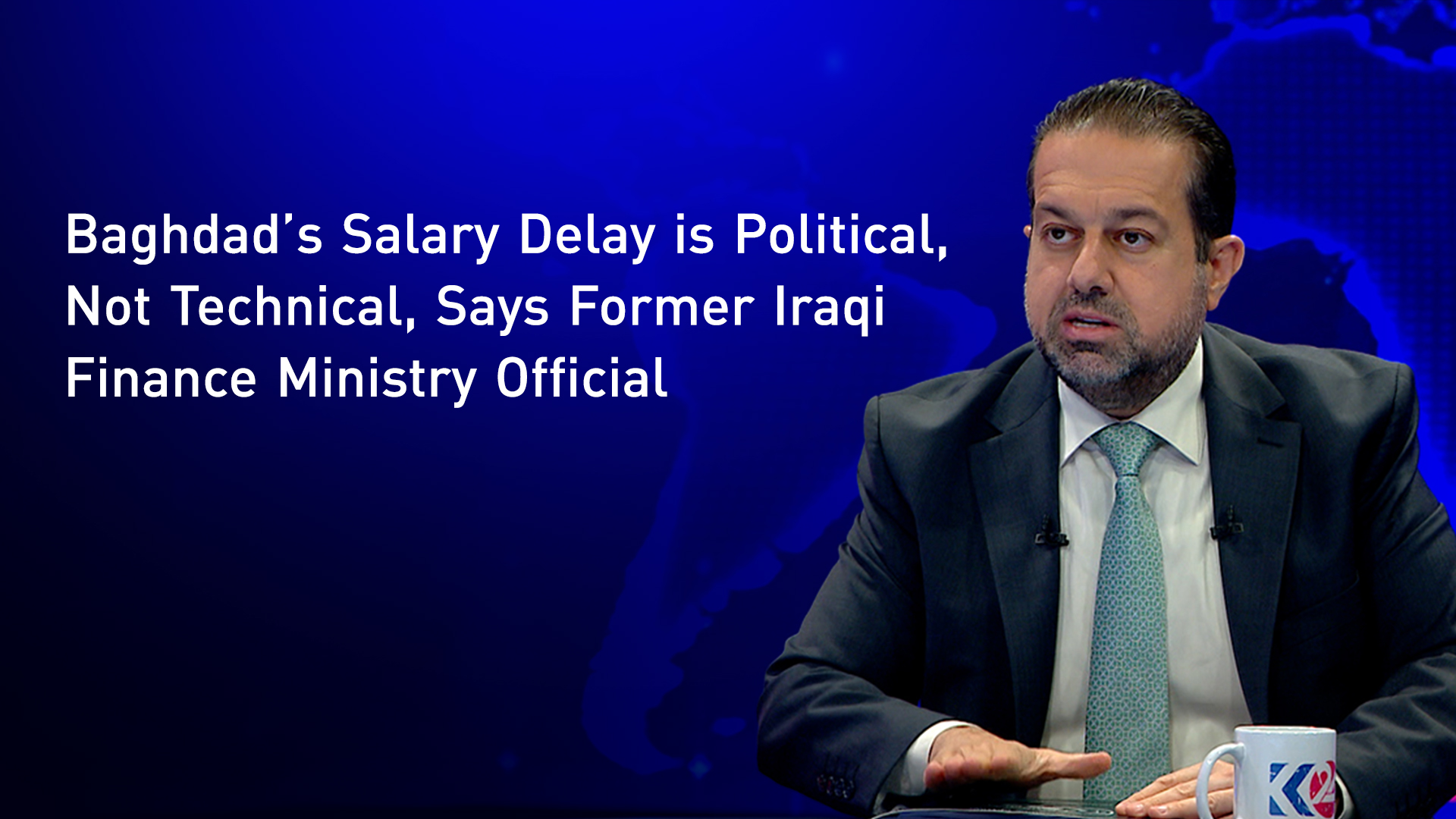Baghdad’s Salary Delay is Political, Not Technical, Says Former Iraqi Finance Ministry Official
Hamlan further warned that if no decision is made by Sunday at 2 PM, a delegation from the Kurdistan Region’s Ministry of Finance will travel to Baghdad for direct talks.

ERBIL (Kurdistan24) — A former senior Iraqi finance official has revealed that the authority to release salaries for the Kurdistan Region lies not with the Iraqi Minister of Finance, but with the country’s Prime Minister.
Speaking during a live appearance on Kurdistan24’s “Eight O’Clock News” on Saturday, Rebaz Hamlan, the former advisor at the Iraqi Ministry of Finance, said that the salary issue is purely political. “The Ministry of Finance has no reservations about the salary list of April submitted by the Kurdistan Region around 20 days ago,” he noted, adding that the list has already been approved.
Hamlan stated, “The Finance Ministry has informed the Kurdistan Region that it has not yet received an executive order from the Prime Minister to proceed with the disbursement. Without that order, the Finance Minister cannot initiate the payment.”
He clarified that the mechanism for transferring salaries to the Kurdistan Region requires a directive from the Iraqi Prime Minister to the Minister of Finance, and so far, no such instruction has been issued. “The authority to disburse salaries lies solely with the Prime Minister. If he gives the order, the Finance Minister cannot refuse under any circumstances,” Hamlan asserted.
Hamlan further warned that if no decision is made by Sunday at 2 PM, a delegation from the Kurdistan Region’s Ministry of Finance will travel to Baghdad for direct talks.
He also accused Baghdad of using salaries as a political pressure tool against the Kurdistan Region. “There is no financial liquidity crisis in Iraq. Claims suggesting otherwise are unfounded,” he said.
Regarding the Kurdistan Regional Government (KRG), Hamlan emphasized that in 2025, the KRG had fully complied with all instructions, comments, and requests from Baghdad, and the Federal Board of Supreme Audit had verified this compliance.
The dispute over April salary payments has once again exposed Baghdad’s selective enforcement of budgetary obligations, despite the Kurdistan Regional Government’s (KRG) full compliance. Top Kurdish lawmaker Vian Sabri emphasized that Erbil has met all its commitments under the 2023 federal budget law, including transferring 50% of its non-oil revenues to the federal treasury. While the Federal Ministry of Finance confirmed there were no objections to the latest payroll list submitted by the KRG, salaries have still not been disbursed.
Sabri condemned this lack of transparency, noting that Baghdad’s refusal to send salaries—despite having paid its own employees for the same period—reflects a discriminatory and politically motivated approach that continues to undermine trust and destabilize public welfare in the Kurdistan Region.
Tensions have risen sharply in recent years, with Baghdad periodically withholding salaries from the Kurdistan Region, citing technical or legal reasons. However, Kurdish officials and international actors often see the move as a political bargaining tactic.
Hamlan’s comments underscore growing concerns that Baghdad is leveraging financial tools to exert political pressure, even as the KRG demonstrates increasing compliance with federal demands.
Whether the upcoming visit by the Kurdistan Region’s finance delegation can break the deadlock remains to be seen—but for now, tens of thousands of public sector workers in the Region continue to face financial uncertainty.
